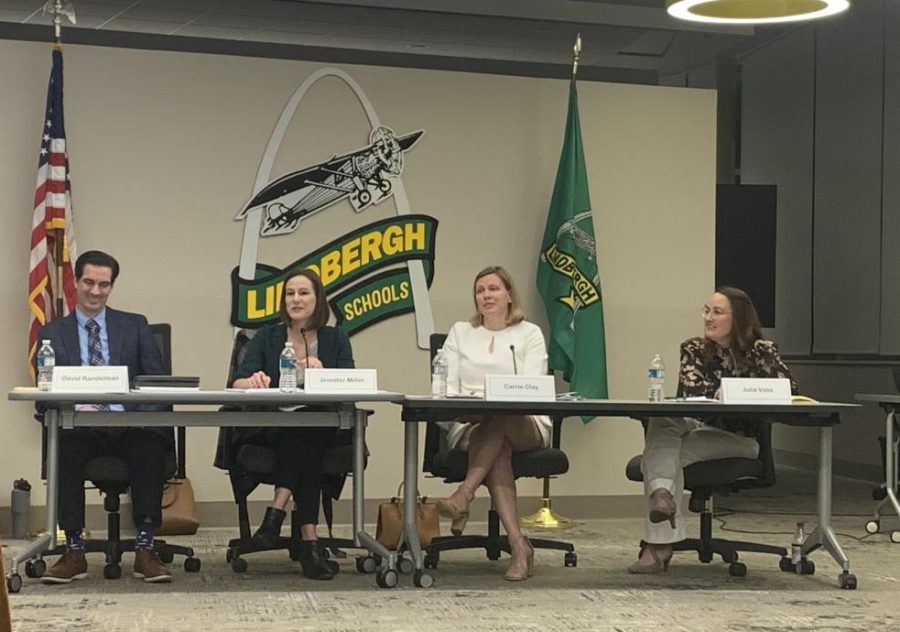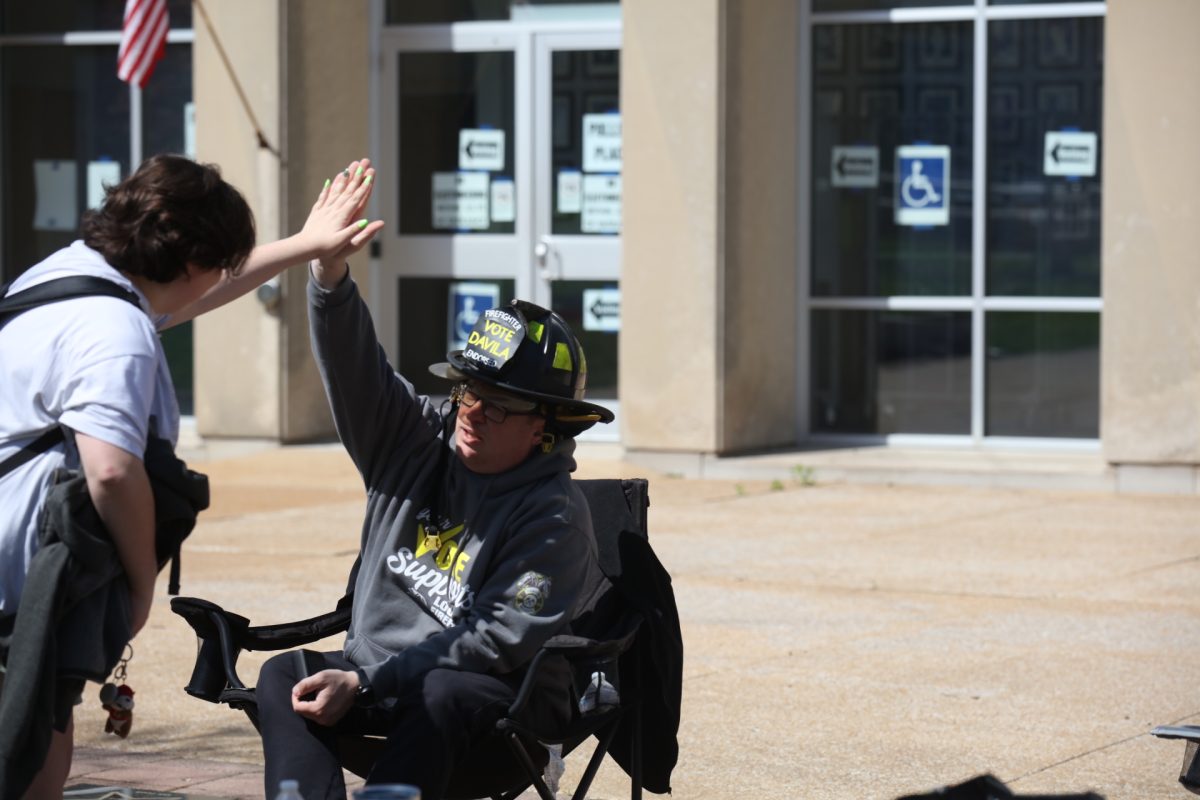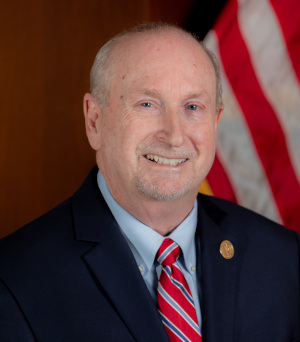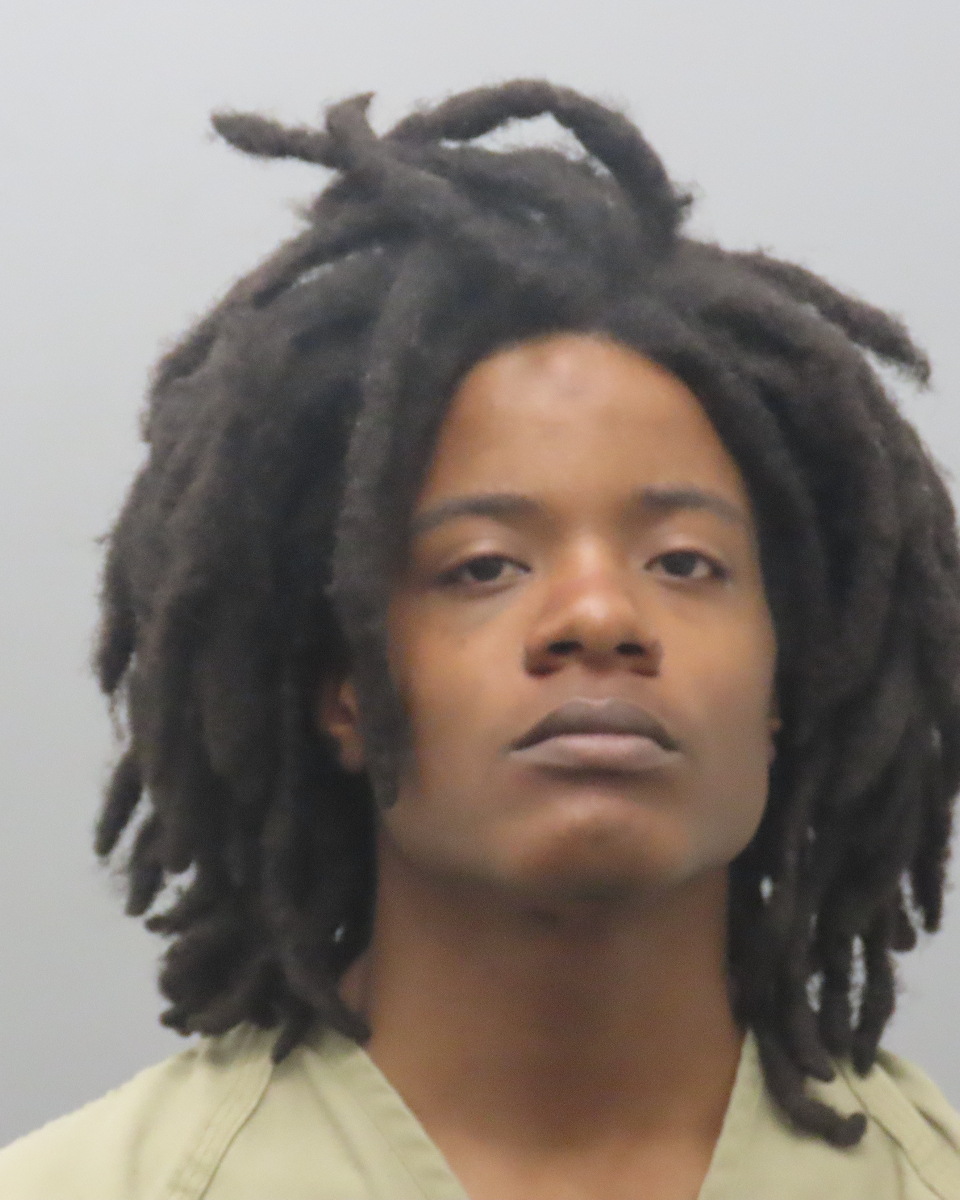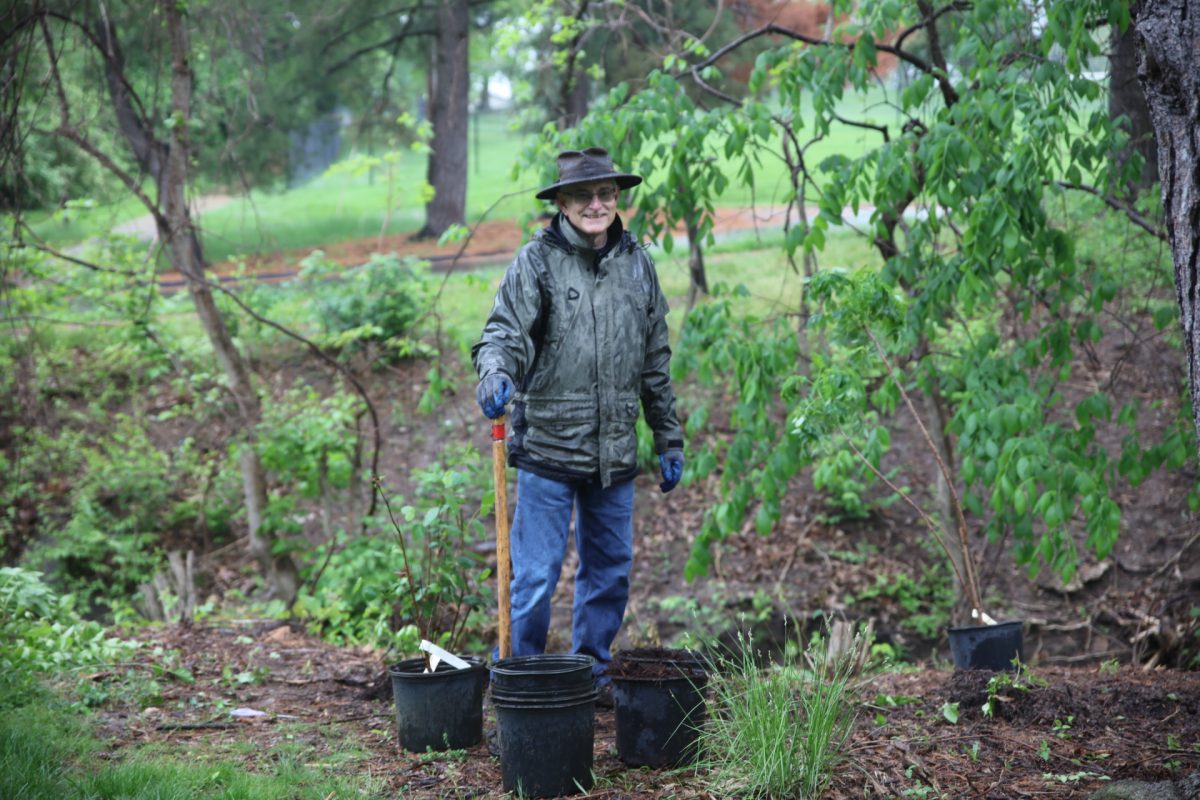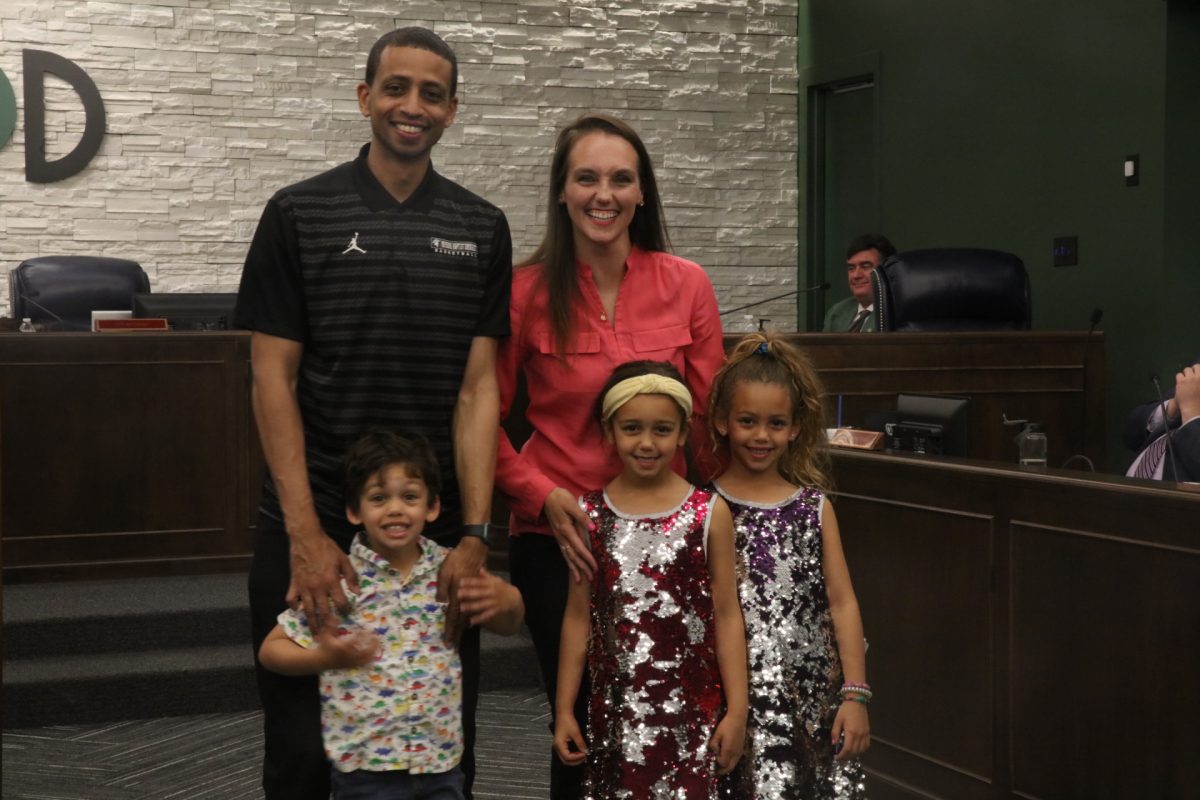Four Lindbergh Board of Education candidates had the chance to make their stances known on key issues surrounding the race at a forum March 14.
There are two seats on the board up for grabs — Mike Tsichlis’, who is not seeking re-election because he is running for state representative, and Jennifer Miller’s, who is running for re-election. The four candidates in the April 5 election include newcomers Carrie Clay, David Randelman and Julia Voss, and incumbent Miller.
Topics covered at the forum included Lindbergh’s academic ranking, literacy, equity and diversity and more. All questions and topics were submitted by citizens, and the event was moderated by the League of Women Voters.
The full forum can be viewed on the district’s Youtube channel.
Lindbergh’s ranking
Recently, Lindbergh’s ranking as a top school district has been called into question after a report from schooldigger.com ranked the district 76th in the state — it had been ranked No. 1 as recently as 2014. Several citizens submitted questions asking why the district has fallen so dramatically.
On March 9 the district sent out a report to parents showing that the district is still well above average in testing and college readiness. The district website also states that it has begun deprioritizing the test in comparison with other districts. Throughout the state, the Missouri Department of Secondary and Elementary Education has advised districts not to make snap decisions based on the 2021 scores.
All four candidates mentioned literacy issues within the district being a key factor in students’ test taking struggles, with Miller, Clay and Randelman referencing the need for math interventionists within the district.
“Our literacy rates in our district are not good. Depending on the grade level you look at, we’re somewhere between 35 to 40 percent of our students struggling to read,” Clay said.
Voss said she doesn’t believe Lindbergh is ranked 76th, as the score is based off test scores, and 20 percent of district students didn’t take the Missouri Assessment Program test in 2021 due to COVID.
“When 20 percent of your student body isn’t included in the number, it’s invalid,” Voss said. “That number is not a true ranking, it’s not where Lindbergh stands.”
Each candidate said the pandemic contributed to Lindbergh student’s troubles on the MAP test. Miller made sure to reiterate the district is not prioritizing the test, and students having to take it in person after learning virtually was a contributing factor.
Literacy
Although it was mentioned during the candidates’ discussion of the district’s rank, multiple questions were submitted regarding the district’s handling of reading and writing disabilities.
Clay, who has had to send her two children to schools outside of the district for reading support, said advocacy for that support is one of her main reasons for running.
“The advocacy of parents in this district has fallen on deaf ears. It’s really sad that these kids are not able to get the support they need,” Clay said. “It’s the reason we had to leave the district and we need to do better for these students.”
Randelman said about 30 percent of Lindbergh students have issues with literacy, while in the general population only around 20 percent have the same issues.
Voss said it might take the district employing more reading specialists for it to work out literacy issues, assuming the district could afford it.
Equity and diversity
Equity and diversity has been a hot topic during public comment at Lindbergh board meetings, so naturally it was discussed at the candidate forum.
Miller said the district is required to have an equity plan, and has evaluated its plan based on training that staff has undergone in the past.
Randelman, who serves on the district’s Diversity, Equity and Inclusion Committee, said he has been concerned with some of the district’s diversity efforts in the past.
“I was very concerned when I saw the district sending teachers to the (Educational Equity Consultants) where racism was redefined and pitted as oppressors versus oppressed,” Randelman said. “It’s very important that we accept everyone, but you also have to have a framework that brings us together, and that is the American framework.”
The candidates had differing opinions when asked if inclusion efforts and discussions are hurting children emotionally or academically.
Randelman said history is currently being taught in a narrative basis, and it caused his children to look at themselves and think “Do I fall in that category of oppressor?” He said history lessons should be factual and allow the children to draw their own conclusions.
Miller said discussions of equity and diversity should be embedded throughout the day and be brought up naturally.
“Obviously, within the classroom you’re going to have students write a paper or project that brings up issues that aren’t in the curriculum, but are going to have to be addressed,” Miller said. “We have to give room for professionals to do the job that they’re trained to do.”
Clay said inclusion and a sense of belonging are important and modeling those behaviors is a way to start.
Voss said the discussions are not hurting academics in the district.
“Most of the character discussions they have are done during a class meeting in a very short amount of time,” Voss said. “Part of being a teacher is bonding with the students and having these meetings.”
Voss said one project she knows of has students do a book report from the protagonist’s point of view, bringing together different experiences while analyzing them.



